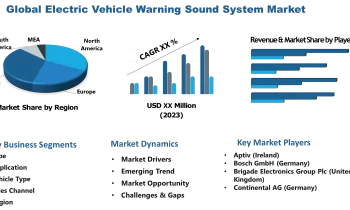If you have a website, you should care about online accessibility.
The world we live in today is moving in a positive direction of being more inclusive than ever before. And with that comes ensuring everyone has equal access to everything online.

Online accessibility has become a hot topic, with numerous trends, lawsuits, and technological advances to consider.
No matter what industry your business is in or how small or big you are, your commitment to online accessibility is a social commitment to the modern world of digital marketing and business as a whole.
Why does it matter so much right now? Well, it has always mattered. But with the pandemic shifting the majority of businesses online and consumers increasing the time they spend on websites on the internet, online accessibility has become even more highlighted.
That is why we have rounded up five reasons why online accessibility matters more now than ever before.
1. Protect Yourself from Lawsuits
The economy is unstable. People are desperate. And companies will be the target of many consumers looking to win some spare cash. And we aren’t talking a couple hundred. If a business loses an ADA case, they risk having to pay hundreds of thousands of dollars. In the last year, ADA lawsuits have been steadily increasing. One person even sued nearly 200 companies that she claims were not ADA compliant with her screen reader. You could easily be lumped in these lawsuits if you don’t do your due diligence. For example, to ensure your website is ADA compliant so that you protect yourself from owing an extraordinary amount of money.
2. Find New Customer Bases
With so much competition on the internet, it can sometimes feel near impossible to stand out and get new customers. However, when you put in the extra time to be ADA compliant, you give yourself a competitive edge to win new customers. If a website is not accessible, customers are going to move on. But if you do it right, you can capture their attention, take them on your user experience that you’ve road mapped out and impress them with how easy it is for them to navigate their way around. Chances are, they will keep coming back and tell others they know to give your website a visit too. With nearly 1 in 4 Americans facing some disability, there is a huge new customer pool that your business can tap into.
3. Raise Your SEO Optimization
When your online accessibility is good, so will your SEO rating. The two are basically intertwined, as websites are rewarded by SEO for the same factors that make your website accessible. SEO particularly loves websites that have an excellent user experience, particularly the number of times users interact with your content. When you make your website accessible, you are making it easier for them to interact with your content for longer. More so than that, the majority of SEO best practices directly correlate to online accessibility metrics—such as the type of alternate tags and captions you use, the way you separate content and use headings, and the breadcrumbs you leave on your website.
4. Create a Positive Brand Reputation
We live in a judgemental society. But by championing online accessibility through your own website, you will be giving the public a reason to support you. Society demands corporate responsibility on a range of social initiatives, including inclusivity. If people see you are taking action for the disabled, they will be much more inclined to advocate for your business and trust them. This, in turn, will likely win you some new customers!
5. Be a Leader in Your Industry
Even if your competitors haven’t yet prioritized online accessibility, there is no reason why you should not. With so much on the line for those who do not comply with ADA guidelines, you are much better off-putting in the extra time and recourse to regularly audit your website for compliance and accessibility. It is an important factor in your brand and can promote real change in business if you continue to lead.
You also don’t have to figure out if your website is accessible all on your own. You can install technologically advanced software programs into your website that will audit and update content to ensure accessibility automatically. With so much support available, there is no reason not to ensure your website is accessible to all online.



